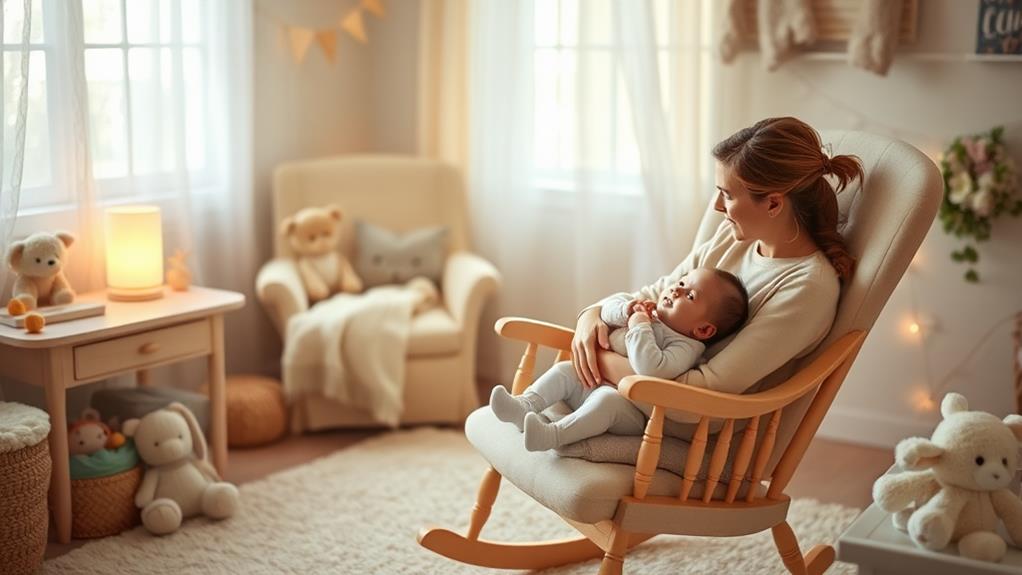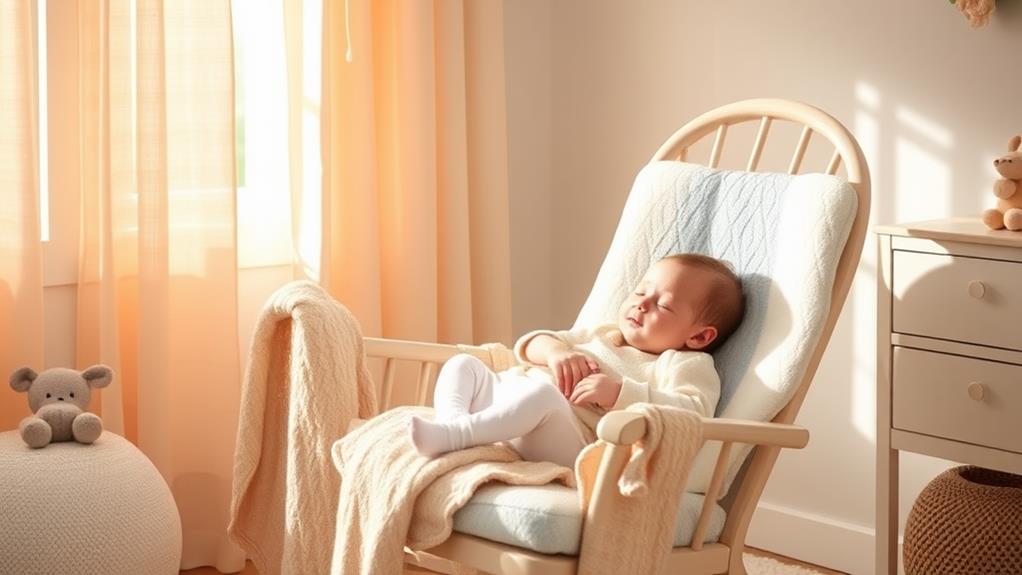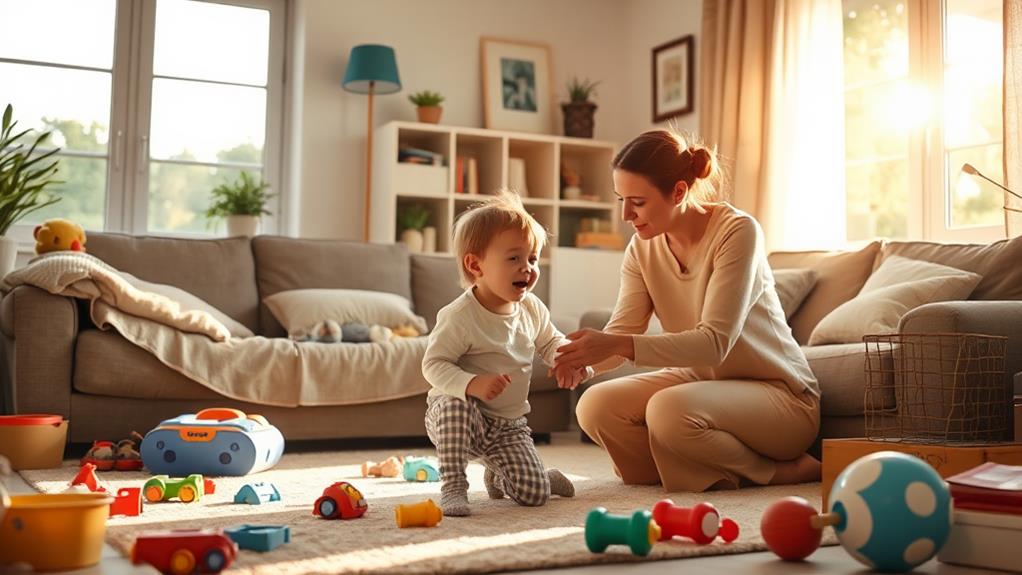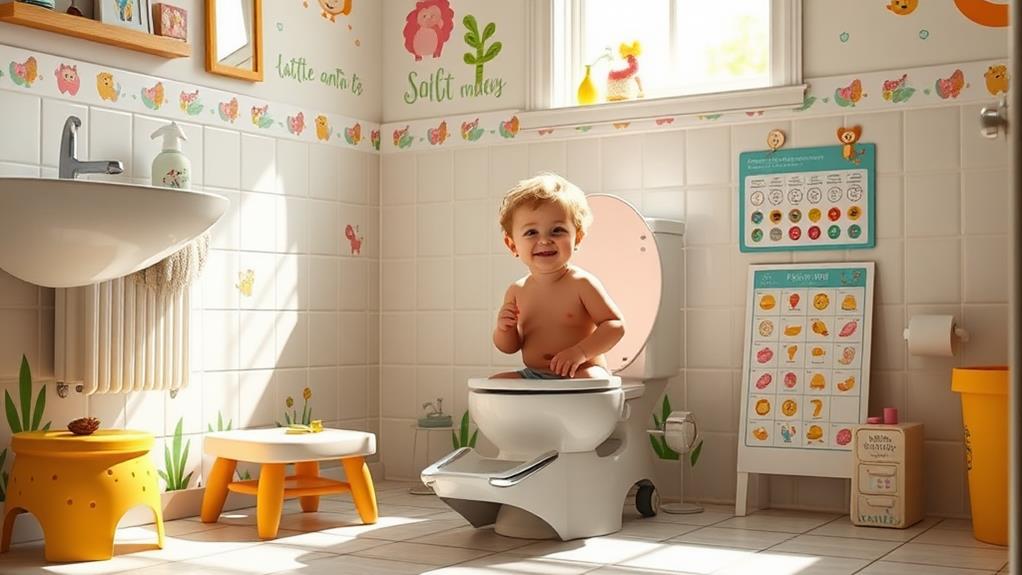Why Do Some Babies Want to Be Held Constantly?
You might wonder why some babies seem to crave constant holding, creating a sense of urgency for you to respond to their needs. This behavior often stems from their emotional security needs, which are essential for their development. When you hold them, you provide comfort, warmth, and a soothing rhythm that can help regulate their feelings. But what factors contribute to this desire for closeness, and how does it impact their growth and your bond? Exploring these questions can lead to a deeper understanding of your baby's world.
Emotional Security Needs

When babies cling to you for comfort, they're seeking emotional security that's vital for their development. This need for closeness isn't just about wanting to be held; it's a way for them to feel safe and loved. Imagine being in a big, strange world without knowing what's around you—pretty scary, right? That's how babies feel!
When you hold them, they sense your warmth and heartbeat, which helps them relax. It's like their favorite cozy blanket, but way better! By being close to you, they can explore their feelings and learn to trust the world around them. This trust is significant as they grow; it helps them become confident and secure little explorers.
You might feel worn out, but remember, your cuddle sessions are building a strong emotional foundation for your baby. It's not just about keeping them quiet—it's about nurturing their spirit!
Developmental Milestones
Developmental milestones are key markers in a baby's growth that indicate their progress in various skills. As a parent, you'll notice these milestones can bring both excitement and a bit of worry. When your baby starts to smile, babble, or even roll over, it's like hitting a mini jackpot! These moments are essential for their development.
You might find that around 2 to 3 months, your baby smiles back at you, creating a delightful bonding experience.
Then, between 4 to 6 months, they may start to sit up, and you'll be amazed at how much they want to explore their surroundings.
As they inch closer to that first birthday, expect them to crawl, stand, and maybe even take a few wobbly steps. It's all part of the fun!
Comfort and Soothing Mechanisms

As babies reach their developmental milestones, they also become more aware of their need for comfort and security. You might notice that your little one wants to be held all the time. That's because they find comfort in your warmth and presence!
When babies feel anxious or overwhelmed, being snuggled up close can help soothe them. It's like their own cozy blanket, but with extra love.
Babies have natural soothing mechanisms, too. For instance, they might suck their thumb or coo softly when they're feeling a bit stressed. These actions help them calm down, but they often prefer to have you nearby. Your heartbeat and familiar voice can be incredibly reassuring for them.
When you hold your baby, you're not just giving them a hug; you're also helping them learn how to manage their feelings. They start to understand that it's okay to seek comfort.
Parental Bonding and Attachment
Parental bonding and attachment play an essential role in your baby's emotional development. When you hold your baby close, you're not just comforting them; you're building a connection that lasts a lifetime. This bond helps your little one feel safe and secure, which is super important for their growth.
Think of it as laying the foundation for a house—the stronger the base, the sturdier the structure!
As you cuddle, your baby learns to trust you and the world around them. This trust leads to better emotional regulation later on. When you respond to their cries and needs, you're showing them they matter. It's like giving them a warm hug made of love and reassurance.
You might notice that some babies want to be held constantly. It's their way of saying, "Hey, I need you!" They crave that closeness because it strengthens your bond.
Plus, let's be honest, who doesn't love those sweet snuggles?
Practical Tips for Parents

Finding ways to hold your baby while still managing daily tasks can be a challenge, but it's definitely doable. First, consider using a baby carrier or sling. These hands-free options let you keep your little one close while you tackle chores or even go for a walk. Plus, babies usually love the snug feeling!
Next, try to involve your baby in your activities. If you're cooking, set them in a safe spot nearby so they can watch you. Talk to them, sing, or even make silly faces—it'll keep them entertained.
Don't forget about nap time! Use this precious time to catch up on tasks, but also make sure to cuddle when it's time to relax. Babies thrive on closeness, and you'll both enjoy those snuggles.
Lastly, remember to ask for help. It's perfectly fine to lean on family or friends. They can hold your baby while you take a breather or finish a project.
You're doing great, and finding balance takes time. Enjoy those moments, even if they sometimes feel like a juggling act!














Post Comment